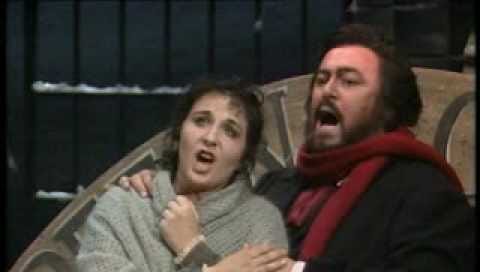If there’s any one source of the romantic myth of the “starving artist,” it’s La Boheme. The luscious 1896 opera by Puccini is about love, friendship, and fleeting youth—as well as cold garrets, unpaid rent, and having to sell off possessions. As a culture, we still think suffering means authenticity, and rejection means artistic value. We think artists can and should live on air. But poverty and struggle are not evidence of genius any more than commercial success is. For Puccini himself—a true genius, as this pair of songs attests—La Boheme was, rightly and ironically, hugely profitable.
Luciano Pavarotti, "Che gelida manina" and Fiamma Izzo d' Amico, "Si, mi chiamano Mimi" from a 1986 production of the opera La Boheme. Written by Giacomo Puccini, 1896.
This post is part of Music 100, a love letter to songs. 100 words on 100 songs in 100 days, running from Groundhog Day through early June, 2025. Inspired by my MFAH 100 project.
Too many emails? For instructions on receiving a weekly recap, click here.
Have a song you’d like me to consider? Send a message or leave a comment. I will give it a serious listen.





I don't even much like opera, but it's hard not to be swept up by this.
Yes! What an inspiring way to begin this Tuesday morning. Now, I'm going to put on my
RECORDS ! How I love this opera, and thanks to PBS I saw the recording. I think it was my first year in Cimarron, 1986. Wow! Many moons ago, but ageless. Thanks, Rainey....